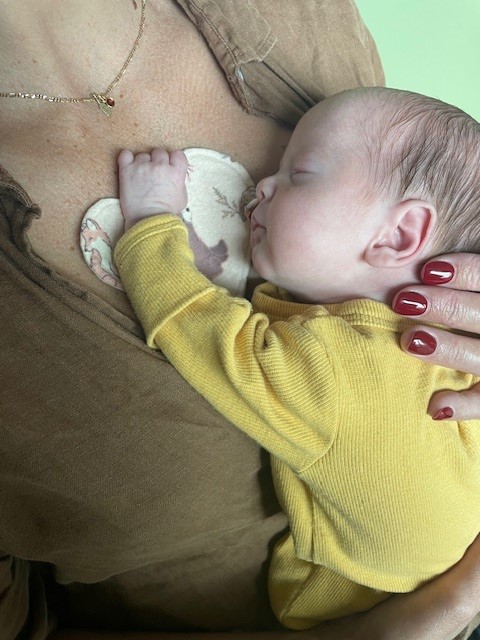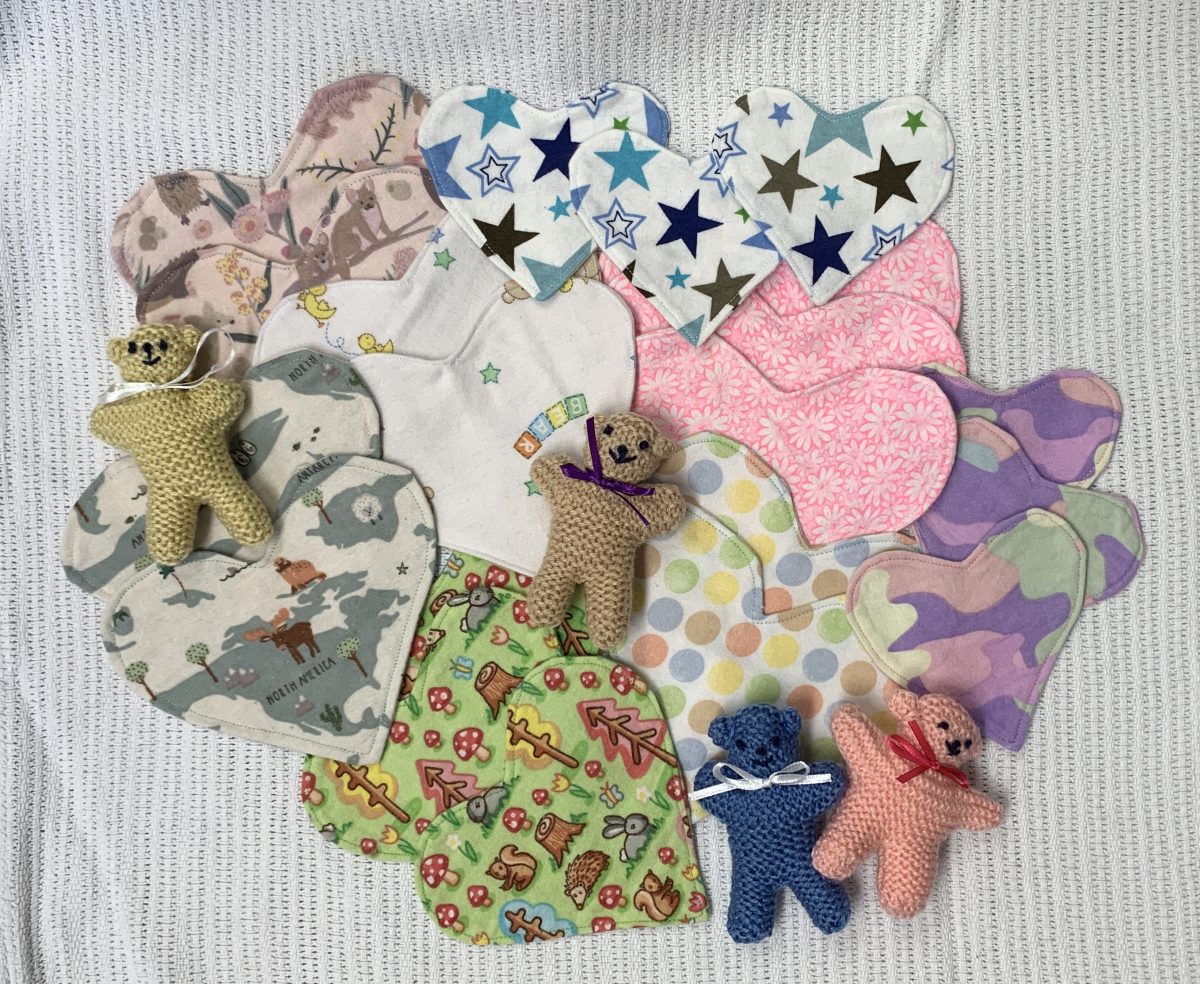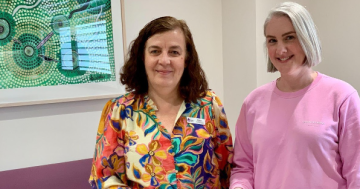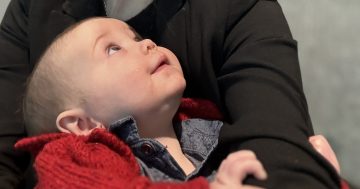
Baby Florence shares a bond with her mother, thanks to the handmade scented heart specially made for newborns. Photo: Supplied.
It’s the bond between mother and child that knows no boundaries – instinctive love.
But what happens when the two have to be separated, even for the shortest of times? Say, when the baby has to be isolated in a humidicrib while the mother waits anxiously nearby. How does this connection survive, particularly in a clinical hospital environment?
If anyone should know – and understand the importance of maintaining such a bond – it is Mary-Ellen Youseman, a neonatal lactation consultant at Canberra’s Centenary Hospital for Women and Children. And her secret to securing that bond? Handmade scented hearts.
The hearts symbolise a bridge between mother and baby during times of separation and uncertainty. Ms Youseman uses them to help cope with what can be the most challenging of times for mothers and babies going through the Neonatal Intensive Care Unit (NICU) and Special Care Nursery (SCN).
“The scented hearts are an important part of our everyday workings at the NICU/SCN,” Ms Youseman said.
“Families love them,” she said. “Separation from your baby is difficult, and the hearts offer some comfort for the mum and the baby. Sometimes a mother is still in recovery, and I hand them to the father and explain how to use the hearts.”
She said the significance of the scented hearts extended beyond their aesthetic appeal.
“As newborns are highly sensory-driven beings, the familiar scent of their mother’s milk acts as a gentle stimulus, promoting breastfeeding and nurturing the mother-infant bond,” she said.
“Neonatal lactation consultants and nurses encourage mothers to keep one scented heart close to them and another in the incubator with their babies, fostering a sense of closeness despite physical separation.”
A Canberra Hospital Foundation project, the hearts are made by individuals and groups from across the Canberra region, ensuring that they are always available for mothers and babies.
“Each heart is infused with care and consideration, reflecting the unwavering support of the community towards families experiencing the trials of the NICU and SCN,” Ms Youseman said.

Some of the scented hearts destined for new mums and bubs in hospital. Photo: Supplied.
“Some of our families are with us for 150 days. One mother told me she had managed to keep every little heart for her baby box, a timeline of storytelling she will share with her baby when she is older.”
Ms Youseman said the simplicity of the scented heart served as a reminder of the power of compassion and connection in healing.
“The team’s dedication to this gesture of kindness exemplifies the profound impact healthcare teams can have beyond their clinical roles, shaping experiences that resonate deeply with families during their most vulnerable moments.”
She said the scent of the hearts permeate the NICU, carrying with them a message of hope, resilience and the enduring bond between parent and child.
To learn how you can support the work of the Canberra Hospital Foundation, go to the website.





















